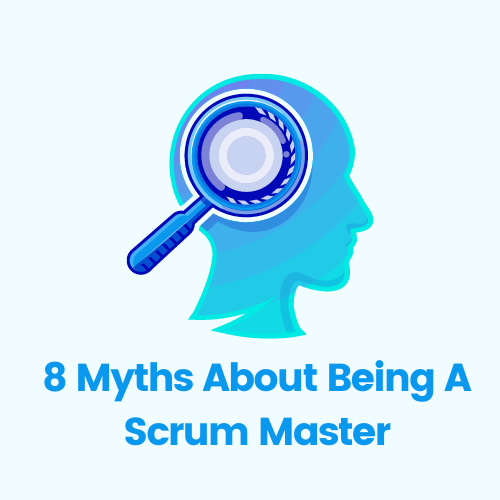-
Scrum Masters are Project Managers: While both roles involve facilitating the team's progress, they have different focuses. Project Managers often deal with planning, resource allocation, and ensuring project milestones are met. On the other hand, Scrum Masters primarily focus on removing obstacles, facilitating meetings (like daily stand-ups, sprint planning, etc.), and fostering an environment where the team can effectively collaborate and deliver value iteratively.
-
Scrum Masters Dictate Solutions: Some might think that Scrum Masters are the ones who come up with solutions to problems the team encounters. However, a core principle of Scrum is self-organization. Scrum Masters guide the team towards finding solutions on their own by asking probing questions, providing insights, and encouraging collaboration. They empower the team rather than dictate their actions.
-
Scrum Masters Only Work with Development Teams: While the primary interaction of Scrum Masters is indeed with development teams, their role extends beyond that. They also collaborate with Product Owners to ensure that the product backlog is properly maintained and understood. Additionally, Scrum Masters often work with stakeholders to facilitate communication and manage expectations. Their goal is to create an environment conducive to the successful delivery of the product, which involves engaging with various parties beyond just the development team.
-
The Scrum Master is the boss: One common misconception is that the Scrum Master is akin to a project manager or team leader. In reality, the Scrum Master serves the team by facilitating Scrum events, removing impediments, and fostering a self-organizing environment. They don't have authority over the team members but rather act as a servant-leader.
-
Scrum Masters only focus on ceremonies: While facilitating Scrum events like sprint planning, daily standups, sprint review, and retrospective is an essential part of the Scrum Master's role, their responsibilities go beyond that. They also coach the team on Agile principles, help in removing impediments, and ensure the team adheres to the Scrum framework.
-
Scrum Masters dictate how work is done: Another misconception is that Scrum Masters dictate the process and how work should be done. However, Scrum emphasizes self-organizing teams where members collectively decide how to achieve their sprint goals. The Scrum Master facilitates this process but doesn't dictate the details of implementation.
-
Scrum Masters are only needed in software development: While Scrum originated in software development, its principles and practices have been successfully applied in various industries beyond IT, such as marketing, HR, and manufacturing. Consequently, Scrum Masters are valuable in any context where complex work needs to be managed iteratively and incrementally.
-
Certification makes you a proficient Scrum Master: While certification programs like Certified ScrumMaster (CSM) provide foundational knowledge, they alone don't guarantee proficiency. Being an effective Scrum Master requires practical experience, continuous learning, and the ability to adapt to various team dynamics and organizational contexts.

8 myths about being a scrum master
Valentine MbawaBeing a Scrum Master isn't just about meetings and post-its. It's about servant leadership, empowering teams, and navigating complex dynamics. There are several myths which surround the role of being a Scrum Master. Understanding these myths can help clarify the true role and responsibilities of a Scrum Master and foster more effective Agile practices within teams and organizations.
